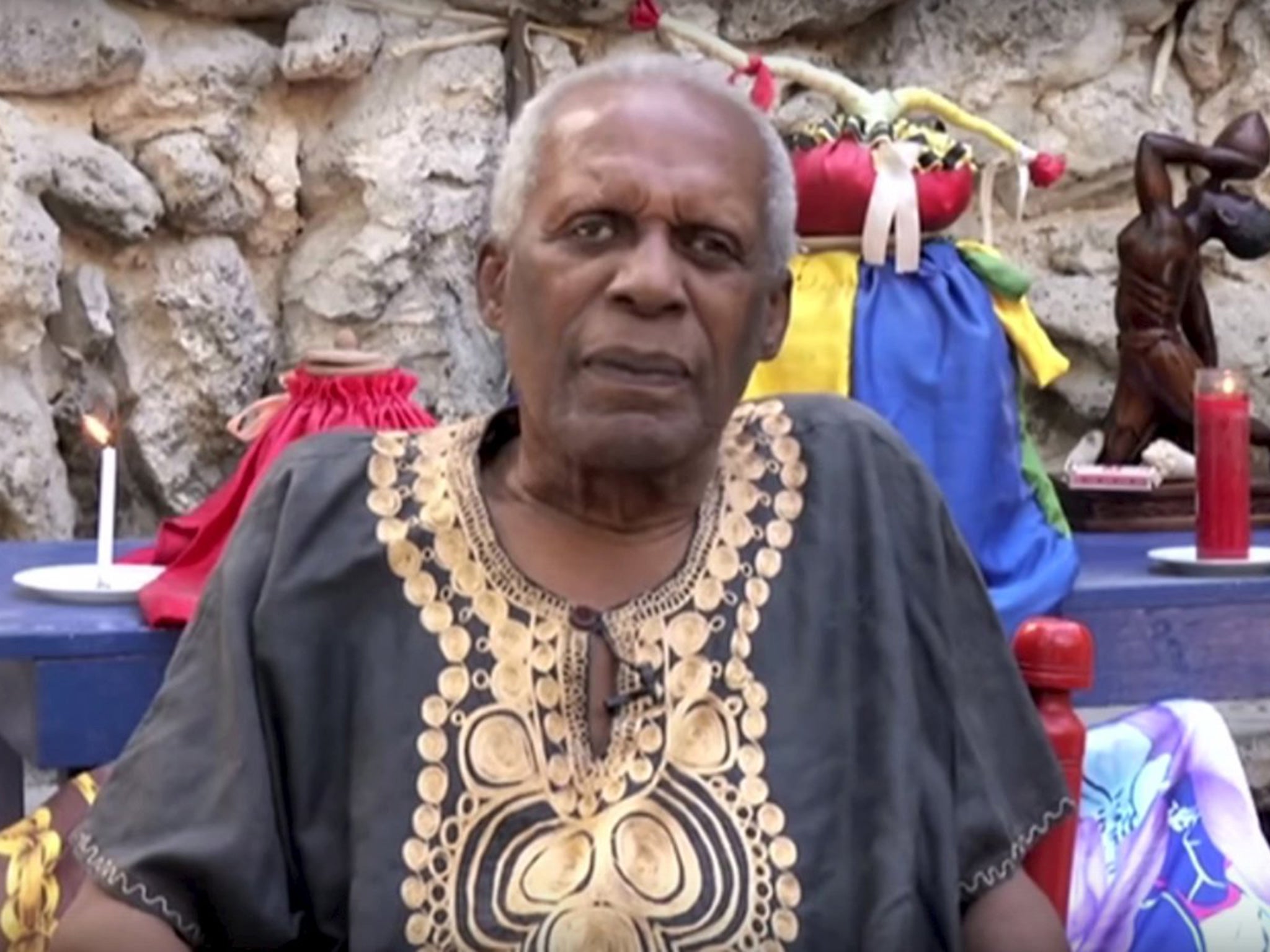Max Beauvoir: Biochemist who worked on synthesising steroids in the US before returning to Haiti to become a voodoo priest
In 1975 Bill and Hillary Clinton honeymooned on Haiti, meeting Beauvoir and attending a ceremony

Your support helps us to tell the story
From reproductive rights to climate change to Big Tech, The Independent is on the ground when the story is developing. Whether it's investigating the financials of Elon Musk's pro-Trump PAC or producing our latest documentary, 'The A Word', which shines a light on the American women fighting for reproductive rights, we know how important it is to parse out the facts from the messaging.
At such a critical moment in US history, we need reporters on the ground. Your donation allows us to keep sending journalists to speak to both sides of the story.
The Independent is trusted by Americans across the entire political spectrum. And unlike many other quality news outlets, we choose not to lock Americans out of our reporting and analysis with paywalls. We believe quality journalism should be available to everyone, paid for by those who can afford it.
Your support makes all the difference.Max Beauvoir followed an unusual career path. He left his native Haiti to study chemistry in New York, graduated in biochemistry from the Sorbonne then moved back to New York to work on synthesising steroids – but then he went home to Haiti to become a voodoo priest, ending up as the religion’s supreme chief.
A mixture of Catholicism and beliefs from West Africa, voodoo is recognised as an official religion in Haiti. It developed in the 17th century when colonists brought slaves from Africa. Forced to practice Catholicism, they adopted saints to match the spirits with which they were familiar. Followers believe in reincarnation, one God and a pantheon of spirits, and many of Haiti’s 10 million people follow both Voodoo and Catholicism.
Beauvoir was born in 1939 in a Haitian village; his father was a physician. His years abroad came to an end in 1974 when he returned to Haiti to see his grandfather, a voodoo priest, who was on his deathbed. As he looked around the room at the family members, he pointed to Beauvoir, telling him, “You take over.” Beauvoir decided to do so – “It was not the sort of thing you could refuse,” he said. He founded Le Péristyle de Mariani, a Hounfour, or voodoo temple, in his home, south of Port des Princes (it also served as the village clinic).
In 1975 Bill and Hillary Clinton honeymooned on Haiti, meeting Beauvoir and attending a ceremony. “After several minutes of rhythmic dancing to pounding drums, the spirits arrived, seizing a woman and a man,” Bill Clinton recalled. “The man proceeded to rub a burning torch all over his body and walk on hot coals without being burnt. The woman screamed repeatedly, then grabbed a live chicken and bit its head off.”
At the Péristyle de Mariani, Beauvoir would preside over daily ceremonies. Amid dancing, drumming and animal sacrifice, spirits were summoned to heal the troubled. One writer described it as a “bizarre mix of an ancient temple, a touristy cabaret, a sacred, secret voodoo ceremony and Rick’s Café from Casablanca”. Beauvoir insisted voodoo has a genuine effect: “It does work, 100 per cent. It always works.”
Beauvoir had a troubled relationship with the ruling, despotic Duvalier family. He dared to urge them to do more to help the poor, his status as a houngan, or priest, protecting him from the wanton violence of the Duvalier’s murderous paramilitaries, the Tonton Macoutes. When Jean-Claude Duvalier – “Baby Doc” – was deposed, an armed mob attacked the Péristyle de Mariani.
In later years Beauvoir divided his time between Haiti and Washington, where he set up a voodoo shrine, the Temple of Yehwe, in an apartment block. He championed the rights of worshippers: “Today, voodooists are at the bottom of society. They are virtually all illiterate. They are poor. They are hungry. You have people who are eating mud, and I don’t mean that as a figure of speech.”
In 2008, when Haiti’s houngans formed a national federation, Beauvoir was invited back to become “Ati”, or supreme chief. He believed that voodoo was a solution to Haiti’s problems and he called for the country’s houngans to be given a formal role in government. “We are the country,” he proclaimed.
Max Gesner Beauvoir, biochemist and voodoo priest: born Haiti 25 August 1936; married; died 12 September 2015.
Join our commenting forum
Join thought-provoking conversations, follow other Independent readers and see their replies
Comments